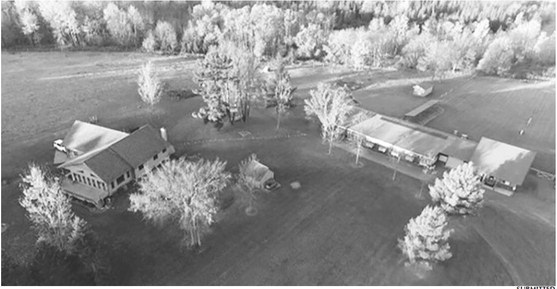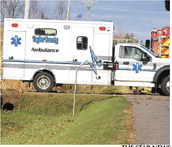Support for farmers important to rural communities during COVID-19 pandemic
Wisconsin Farm Support Program set to open for second round of applications
After five years of depressed market prices for grains, meat, and dairy products, farmers, like the rest of society, are experiencing adverse effects from the COVID-19 pandemic. In recent months we’ve witnessed a drop in demand and market prices for meat, dairy and specialty crops as the lockdown reduced needs in the service sector, limited production at meatpacking plants due to virus spread, and slowed export growth for grains.
Both the federal and state governments have allocated support for farmers in these difficult times, not just through the Paycheck Protection Program (PPP) or the Economic Injury Disaster Loan (EIDL) program, but in aid directly linked to specific commodities. The U.S. Department of Agriculture combined $9.5 billion (0.43% of funds) from the $2.2 trillion Coronavirus Aid, Relief and Economic Security (CARES) Act and $6.5 billion allocated to the Commodity Credit Corporation for a total of $16 billion in financial relief to farmers. The Wisconsin state government additionally allocated $50 million in direct payments of $1,000 to $3,500 to farmers.
Given the USDA-projected net loss in farm income this year, these payments are much appreciated and will at least help keep many, if not most, farmers struggling on.
Similar to all government programs, these come with limitations. The formula used in determining the allocation under the CARES Act or the rationale justifying such allocation remains unclear. This is not dissimilar to the Market Facilitation Program of recent years, which led many to assert that formulations were politically focused. We as farmers and grateful recipients of this assistance and, moreover, as responsible citizens must be assured that neutral decisions that are fair and equitable were used in this determination. We will need to justify such assistance if other individual entrepreneurs, such as small business owners, receive no individual-specific benefits over and above the PPP and the EIDL.
Wisconsin Farm Support Program set to reopen in August
The Wisconsin Farm Support Program provided through federal COVID-related funds amounts to $50 million with payments ranging from $1,000 to $3,500 per farm. Eligibility for receiving assistance in the program’s initial application period in July required that a farm’s 2019 gross income from farming exceeded $35,000 but was less than $5 million, exclusive of farm income from partnerships, S corporations, estates and trusts. That restricted farm support to 26,500 farms in a state that has 64,800 farms, such that roughly 60% of farmers would receive no farm support.
Of those eligible farms, 14,543 applications were submitted, accounting for only 56% of eligible Wisconsin farms. Because fewer than expected applications were received in the first funding window, DATCP secretarydesignee Randy Romanski recently announced the application period will reopen with the minimum gross income lowered to $10,000. Wisconsin Farmers Union had advocated for the lowered threshold in the initial round, noting many small, older, or beginning farmers would not qualify at the $35,000 gross income benchmark.
The next round of applications will be from August 10-24, with funds again administered by the Department of Revenue. Those who received money in the first round are not eligible to apply. Minimum and maximum payments have not been determined but will again be on a sliding scale, so farms with a larger income receive larger payments.
With significant loss of profits because of the pandemic, we farmers thank our legislators and leaders for covering part of our losses. As beneficiaries of government assistance from taxpayers, we have a responsibility to assure these funds are efficiently used, not just as our own backstop, but to improve our economy and our communities.
W. Michael Slattery is a diversified grain farmer from Maribel. He is a member of Wisconsin Farmers Union and submitted this on behalf of the WFU Grain Committee.



